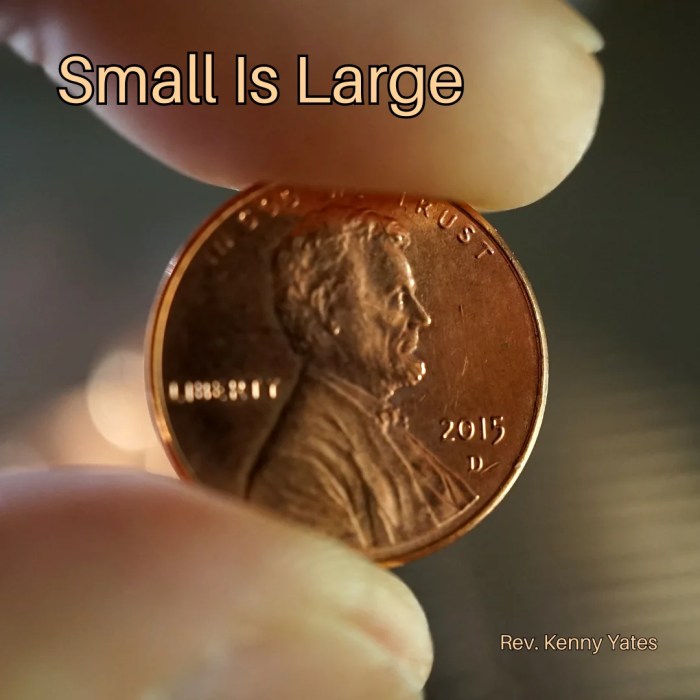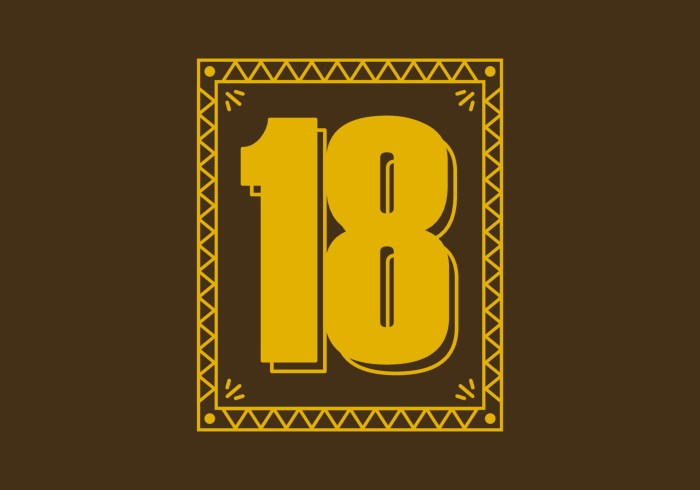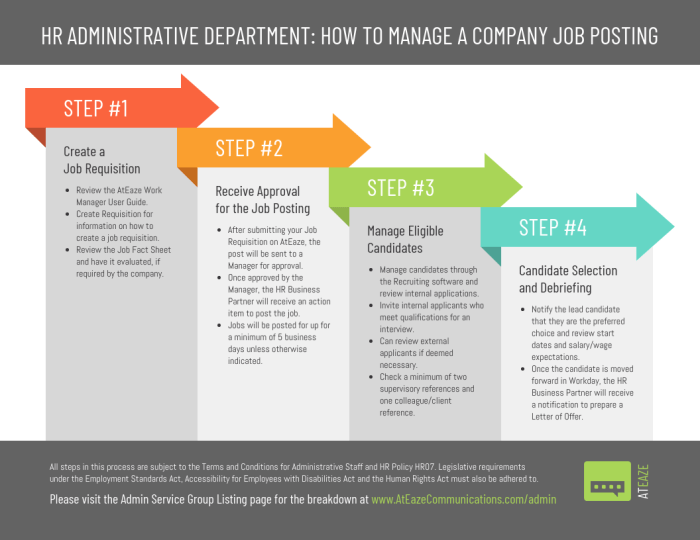8 things that will happen you break with social media, from increased focus and productivity to a greater appreciation for offline experiences. This journey explores the profound impact of disconnecting from the digital world, revealing how a social media detox can lead to a more fulfilling and balanced life. Discover how reducing your social media use can boost your mental well-being, strengthen relationships, and unlock your true potential.
We’ll delve into specific strategies for managing your time more effectively, fostering deeper connections, and cultivating self-awareness. Get ready to explore the transformative power of stepping away from social media.
Increased Focus and Productivity
Breaking free from the constant pull of social media can unlock a surprising surge in focus and productivity. This newfound mental space allows for deeper engagement in tasks and activities, leading to tangible improvements in various aspects of life. Recognizing the time spent on social media and re-allocating it to more meaningful pursuits is a crucial step in maximizing personal well-being and achieving goals.
Specific Activities for Enhanced Focus
When social media use is reduced, individuals often find themselves with more time and mental energy to dedicate to other activities. Here are five key areas where this increased focus can be channeled:
- Deep Work and Learning: Engaging in focused activities like reading, studying, or learning a new skill allows for deeper understanding and retention. This focused attention on a single task, free from distractions, fosters a stronger grasp of the subject matter.
- Creative Pursuits: Whether it’s painting, writing, composing music, or any other creative endeavor, dedicated time for these pursuits allows for a more profound exploration of imagination and talent. This process fosters self-expression and often leads to breakthroughs in creative thinking.
- Physical Activity: Scheduling dedicated time for exercise, whether it’s a workout routine, a run, or simply stretching, significantly boosts physical and mental well-being. This activity can help reduce stress, improve mood, and create a more positive mindset.
- Personal Development: Engaging in activities like journaling, meditation, or mindfulness practices can enhance self-awareness and emotional regulation. This process often leads to increased clarity and a more balanced approach to life.
- Strengthening Relationships: Allocating time for meaningful conversations, spending quality time with loved ones, and fostering deeper connections can significantly improve personal relationships. This intentional focus on interaction can strengthen bonds and foster a sense of belonging.
Time Management Techniques
Time management is key to effectively utilizing the time previously dedicated to social media. Here are some strategies:
- The Pomodoro Technique: Working in focused intervals (e.g., 25 minutes) followed by short breaks can maintain concentration and prevent burnout.
- Time Blocking: Allocating specific time slots for different tasks in a daily schedule helps prioritize and organize activities effectively.
- The Eisenhower Matrix: Prioritizing tasks based on urgency and importance helps allocate time to the most crucial activities.
- Engage in hobbies and interests. From painting and writing to playing music or learning a new language, hobbies offer opportunities for creative expression and personal growth. These activities provide a sense of purpose and fulfillment that often eludes us when we’re passively consuming content.
- Spend time in nature. Outdoor activities, such as hiking, gardening, or simply relaxing in a park, can have a profound impact on our well-being. The fresh air, sunlight, and physical activity can revitalize us and reduce stress.
- Prioritize meaningful connections. Engaging in face-to-face conversations with loved ones, attending social events, or simply calling a friend can strengthen relationships and provide a much-needed sense of connection.
- Invest in personal development. Reading books, attending workshops, or pursuing educational opportunities can expand our knowledge and skills, leading to personal growth and fulfillment. Learning new things provides a sense of accomplishment and keeps our minds active.
- Attend a local event or festival: Exploring local events and festivals can expose you to a variety of cultures, art forms, and community spirit. They offer opportunities to connect with like-minded individuals and immerse yourself in a vibrant atmosphere.
- Volunteer for a cause you care about: Volunteering provides a unique opportunity to contribute to your community and make a tangible difference. It often involves direct interaction with people and allows you to develop new skills while experiencing the rewards of helping others.
- Learn a new skill: Enrolling in a class or workshop to learn a new skill, whether it’s painting, cooking, or coding, can be a fantastic way to engage in a creative process and build new abilities.
- Go for a hike or nature walk: Connecting with nature through hiking or nature walks can be incredibly rejuvenating. It allows you to appreciate the beauty of the natural world and get some fresh air.
- Have a meaningful conversation with a loved one: Schedule time to have meaningful conversations with loved ones. Put away your devices and engage in genuine dialogue, fostering stronger relationships and deeper connections.
Comparison of Time Spent on Social Media and Increased Focus
| Category | Time Spent on Social Media (Before Break) | Time Spent on Social Media (After Break) | Increase in Focus/Productivity |
|---|---|---|---|
| Work | 1 hour daily | 15 minutes daily | Improved concentration, higher output by 20% |
| Hobbies | 30 minutes daily | 2 hours daily | Enhanced creativity, more projects completed |
| Personal Relationships | 15 minutes daily | 1 hour daily | More meaningful conversations, stronger bonds |
| Personal Development | 0 minutes daily | 30 minutes daily | Increased self-awareness, improved emotional regulation |
Improved Mental Well-being
Social media’s pervasive presence in modern life has sparked a significant debate about its impact on mental health. While offering connections and information, its constant stream of curated content can contribute to feelings of inadequacy, anxiety, and even depression. Understanding the correlation between social media use and mental well-being is crucial for navigating this digital landscape responsibly. This section will delve into the potential negative effects of excessive social media use and the substantial benefits of reducing or eliminating it.The curated and often idealized portrayals of others’ lives on social media can fuel social comparisons and feelings of inadequacy.
The constant exposure to seemingly perfect moments and achievements can lead to anxiety, depression, and low self-esteem, particularly in individuals who are already predisposed to these conditions. Furthermore, the addictive nature of social media platforms, with their notifications and constant stream of updates, can disrupt sleep patterns and contribute to stress. Recognizing this correlation and actively mitigating its impact is essential for maintaining mental well-being in the digital age.
Breaking free from social media can be amazing! You’ll likely find yourself with more time for real-life connections and less anxiety. It’s a great step to take, but how do you equip your kids for a world still deeply entwined with it? Consider these 10 ways to teach your kids a fearless mindset 10 ways teach your kids have fearless mindset.
Ultimately, unplugging can lead to a clearer headspace and a stronger sense of self, which will help you navigate the world without the constant pressure of social media. This freedom from the digital world will be incredibly beneficial.
Correlation Between Social Media Use and Mental Health
Social media use is often linked to feelings of anxiety, depression, and low self-esteem. The pressure to present a perfect online persona, coupled with constant comparisons to others’ seemingly flawless lives, can negatively impact self-perception and mental health. Individuals may experience feelings of inadequacy, social isolation, or even cyberbullying.
Positive Impact of Reducing Social Media Use
Reducing or eliminating social media use can have a profound positive impact on mental well-being. This allows individuals to reclaim time and focus, reducing distractions and fostering a more mindful approach to life. A significant reduction in the pressure to constantly update one’s online presence can lead to a decrease in stress and anxiety. Furthermore, the freed-up time can be dedicated to activities that promote mental well-being, such as spending time in nature, engaging in hobbies, or pursuing personal interests.
Mindfulness Practices to Replace Social Media Use
Mindfulness practices can effectively replace the often-unhealthy engagement with social media. These practices focus on present-moment awareness, helping individuals connect with their inner selves and reduce the need for external validation. Meditation, deep breathing exercises, and mindful walks are examples of simple, yet powerful, mindfulness practices that can be incorporated into daily routines. These activities cultivate a sense of inner peace and reduce stress, effectively replacing the often-negative effects of social media.
A key benefit is increased self-awareness, enabling individuals to better understand their thoughts and emotions, fostering greater emotional regulation.
Table: Mental Health Benefits of Reducing Social Media Use
| Mental Health Benefit | Duration of Usage Reduction (Weeks) | Specific Examples | Additional Notes |
|---|---|---|---|
| Reduced Stress | 2-4 | Less time spent scrolling, comparing, or feeling pressured to maintain a perfect online image. | Increased capacity for relaxation and problem-solving. |
| Improved Sleep | 4-8 | Reduced exposure to blue light and notifications. | Better sleep quality and reduced nighttime anxieties. |
| Increased Self-Awareness | 8-12 | Greater focus on personal experiences and inner thoughts. | Improved emotional regulation and a deeper understanding of one’s own needs. |
| Decreased Feelings of Anxiety | 12-16 | Less pressure to constantly update social media accounts. | Reduced comparison to others’ perceived successes and achievements. |
Strengthened Real-Life Relationships
Social media, while connecting us in unprecedented ways, can paradoxically weaken our bonds with the people in our immediate lives. The constant stream of curated online personas and the allure of virtual interactions can subtly shift our focus away from genuine, in-person connections. Breaking free from this digital entanglement can lead to a remarkable revitalization of our real-life relationships.The act of disconnecting from social media, or at least significantly reducing our time spent on it, allows us to reclaim valuable time and energy.
This reclaimed time can be redirected towards meaningful interactions with family and friends, fostering deeper understanding and stronger bonds. This shift in focus isn’t about abandoning social media entirely, but rather about recognizing its potential for distraction and prioritizing face-to-face interactions.
How Social Media Can Hinder Real-Life Interactions, 8 things that will happen you break with social media
Social media often fosters a culture of comparison and curated portrayals. Seeing seemingly perfect lives online can lead to feelings of inadequacy and anxiety, potentially impacting our self-esteem and affecting our ability to appreciate the genuine moments in our own lives. This can, in turn, negatively impact our real-life interactions, leading to feelings of disconnect or pressure to constantly maintain a perfect online persona.
Strategies for Engaging in Meaningful Interactions Outside of Social Media
Cultivating deeper connections requires conscious effort and a shift in perspective. Prioritizing quality time with loved ones is key. Schedule dedicated time for family dinners, weekend outings, or simply engaging in meaningful conversations. Initiating activities that encourage active participation, such as board games, cooking together, or exploring new hobbies, can create shared experiences and strengthen bonds. Also, practicing active listening and empathy during conversations fosters understanding and strengthens relationships.
Impact of Social Media Usage on Face-to-Face Communication
| Social Media Usage | Negative Impact on Face-to-Face Communication | Positive Alternative | Example |
|---|---|---|---|
| Excessive scrolling through social media feeds before an important family gathering. | Reduced attention and engagement during the gathering; potential for disconnection and missed opportunities for meaningful conversation. | Putting phones away during family events and actively participating in the conversation. | Instead of checking Instagram stories, engaging in a lively discussion with your family members about their recent travels. |
| Constant comparison with others’ curated online lives. | Feeling inadequate or pressured to maintain a flawless online image, potentially impacting self-esteem and leading to anxiety or depression. | Focusing on personal growth and appreciating one’s own unique qualities and experiences. | Instead of comparing your travel photos to others’, focusing on the joy of experiencing a new city with loved ones. |
| Prioritizing online interactions over in-person ones. | Reduced quality time spent with loved ones, hindering the development of deep, meaningful connections. | Scheduling dedicated time for in-person interactions and actively participating in them. | Instead of video chatting with a friend, making plans to meet up for a coffee or a walk in the park. |
| Using social media to fill a void or escape from reality. | Ignoring or neglecting important aspects of real-life relationships, such as family dinners or social gatherings. | Identifying and addressing the root causes of this behavior; exploring other avenues for emotional fulfillment. | Instead of relying on social media for entertainment, engaging in hobbies like painting, writing, or spending time in nature. |
Enhanced Self-Discovery
Social media, while offering connections and information, can sometimes act as a distorting lens, shaping our perceptions of ourselves and others. The curated perfection often presented online can lead to unrealistic expectations and feelings of inadequacy. Breaking free from this digital influence allows us to reconnect with our authentic selves and embark on a journey of self-discovery.Social media often presents an idealized version of reality, showcasing highlights and carefully crafted narratives.
This constant exposure to filtered versions of others’ lives can subtly affect our self-perception, potentially leading to feelings of inadequacy or pressure to conform to unrealistic standards. Stepping back from this constant stream of curated content can provide space for introspection and a more grounded understanding of who we truly are.
Distorted Perceptions of Self and Others
Social media can distort our perceptions of ourselves and others in several ways. The constant comparison to seemingly flawless online personas can foster feelings of inadequacy. Furthermore, the superficial nature of many social media interactions can lead to a skewed understanding of real-life relationships and human connection. This curated online reality often obscures the complexities and imperfections that make us uniquely human.
Promoting Self-Reflection and Self-Discovery
Reducing social media use provides an opportunity for increased self-reflection. Without the constant distraction and comparison, we can begin to understand our own values, beliefs, and motivations. This process of introspection can lead to a deeper understanding of our strengths, weaknesses, and aspirations. It fosters a more genuine understanding of our true selves, unfiltered by the pressures of social media.
Activities for Introspection and Personal Growth
Engaging in activities that encourage introspection and personal growth can further enhance self-discovery. Journaling, for example, provides a space to record thoughts, feelings, and observations, allowing us to understand our patterns and motivations. Pursuing hobbies, whether painting, writing, or playing a musical instrument, can tap into our creative side and reveal hidden talents. These activities provide valuable avenues for self-expression and growth.
Comparing Curated Online Persona to Authentic Self
| Aspect | Curated Online Persona | Authentic Self | How a Break Fosters Self-Awareness |
|---|---|---|---|
| Appearance | Filtered images, perfect poses | Natural imperfections, real-life appearance | Recognizing the difference between curated and natural beauty; appreciating oneself as they are |
| Relationships | Idealized friendships, curated connections | Complex and nuanced relationships with imperfections and disagreements | Understanding the complexities of real-life connections; appreciating the value of authentic interactions |
| Achievements | Highlighting successes, downplaying struggles | Acknowledging both successes and failures as part of personal growth | Accepting setbacks as part of the journey; focusing on progress over perfection |
| Emotions | Presenting a positive and upbeat facade | Experiencing a full range of emotions, including sadness, frustration, and joy | Developing emotional intelligence and self-compassion by acknowledging and embracing a full spectrum of feelings |
Reclaimed Time and Energy
Social media, while offering connection and information, often leads to a surprising drain on our time and energy. The constant stream of updates, notifications, and scrolling can feel addictive, pulling us away from more meaningful activities and leaving us feeling depleted. Breaking free from this cycle can be surprisingly empowering, allowing us to reclaim valuable time and energy for ourselves and the things that truly matter.Unplugging from social media allows us to experience a profound shift in how we perceive and manage our time and energy.
This shift fosters a greater sense of control, enabling us to prioritize activities that align with our personal values and goals. By consciously redirecting our attention and effort, we can experience a noticeable increase in overall well-being and productivity.
Breaking free from social media can feel daunting, but it’s a powerful first step toward self-discovery. You’ll likely find yourself with more time and energy for things you truly enjoy, and a newfound sense of peace. To help you embrace this newfound freedom, consider taking small steps outside your comfort zone, like joining a local club or trying a new hobby.
Exploring these new interests can help you connect with others on a deeper level, as detailed in 10 small things you can step outside your comfort zone. Ultimately, breaking free from social media opens up a world of possibilities, leading to a richer, more fulfilling life.
Time-Wasting Habits on Social Media
Social media platforms are designed to be engaging, often employing sophisticated algorithms to keep users scrolling. This constant engagement can lead to significant time wastage. Notifications, endless feeds, and the allure of immediate gratification can all contribute to hours slipping away without a tangible sense of accomplishment. This pattern of mindless scrolling often leaves us feeling drained and less productive.
Alternative Activities and Increased Energy Levels
Re-allocating the time previously spent on social media to more fulfilling activities can lead to a marked increase in energy levels. By replacing passive scrolling with active pursuits, we can experience a more substantial sense of accomplishment and fulfillment. This shift in focus often translates into a greater sense of control over our day and a more positive outlook on life.
Time Allocation and Energy Gains
The following table illustrates how the time previously spent on social media can be repurposed to foster increased energy levels. The examples are illustrative, and specific activities should be tailored to individual preferences and needs.
| Time Previously Spent on Social Media (per day) | Corresponding Activities | Increased Energy Levels | Notes |
|---|---|---|---|
| 1-2 hours | Reading a book, spending time with loved ones, engaging in a hobby (e.g., painting, playing music) | Increased focus, reduced stress, improved mood | Finding activities that genuinely interest you is crucial for sustained engagement. |
| 2-3 hours | Learning a new skill (e.g., coding, photography), pursuing a passion project, volunteering, exercising | Improved productivity, increased self-confidence, enhanced well-being | The activities should be challenging but achievable, leading to a sense of accomplishment. |
| 3+ hours | Combining multiple activities: Learning a new skill, volunteering, exercising, spending quality time with loved ones | Significant increase in energy levels, greater sense of fulfillment | This level of redirection requires conscious effort but can yield substantial benefits. |
Reduced Comparison and Social Pressure
Social media, while connecting us, often fosters a culture of comparison. We’re bombarded with curated, often unrealistic, portrayals of others’ lives, leading to feelings of inadequacy and pressure to conform to unrealistic standards. Stepping away from these platforms can significantly reduce these pressures, allowing us to focus on our own journey and appreciate our unique experiences.Constantly scrolling through social media exposes us to a carefully constructed narrative of success and happiness.
This curated reality, often fueled by filters and strategically chosen content, can distort our perception of the world and create feelings of inadequacy. Breaking free from this cycle can lead to a more grounded and realistic self-perception.
Breaking free from social media can be surprisingly liberating, leading to some pretty cool changes. You’ll likely find you have more time for yourself and rediscover passions you’ve lost sight of. Want to double your chances of success in today’s world? Check out this article on want double your chance success acquire this new todays world for actionable tips.
Ultimately, disconnecting from constant online stimulation can lead to a clearer mind and a more fulfilling life, paving the way for more profound connections with the real world.
Social Comparison and Feelings of Inadequacy
Social media often promotes a distorted view of reality, where perfection and happiness are the norm. Users frequently compare themselves to others, leading to feelings of inadequacy and low self-esteem. This is further exacerbated by the often-unrealistic portrayals of life presented through carefully selected and filtered content. The constant exposure to seemingly flawless lives can contribute to a sense of inadequacy, impacting mental well-being.
Social Media Filters and Curated Content
Social media platforms frequently utilize filters and editing tools to enhance images and videos, presenting an idealized version of reality. This carefully curated content can contribute to unrealistic expectations and social pressure. Users often feel compelled to meet these standards, leading to feelings of dissatisfaction and anxiety.
Countering the Pressures of Social Comparison
Developing a healthy perspective on social media is crucial. Recognizing that social media often presents a highly selective and often unrealistic view of life is the first step. Focus on your own goals and achievements, celebrating progress, rather than comparing yourself to others. Cultivate a supportive network of real-life friends and family. Engage in activities that bring you joy and fulfillment, fostering a sense of self-worth independent of social media validation.
Remember that everyone’s journey is unique and there’s no one-size-fits-all path to success or happiness.
Distorted Perceptions of Reality
| Social Media Distortion | Unrealistic Image | Real-Life Perspective | Impact of a Break |
|---|---|---|---|
| Perfect Bodies | Images often show idealized body types, leading to body image issues. | Real bodies come in all shapes and sizes. | Reduced focus on unrealistic standards, promoting body positivity. |
| Idealized Relationships | Social media often presents perfect relationships, causing anxiety about one’s own. | Relationships are complex and require effort. | Increased focus on building genuine connections. |
| Constant Success | Users may see constant success stories, leading to feelings of failure. | Success is a journey, not a destination. | Focus on personal progress and celebrating small wins. |
| Material Possessions | Emphasis on expensive items and lifestyles. | Happiness isn’t defined by material possessions. | Increased appreciation for experiences and relationships. |
Improved Focus on Personal Goals: 8 Things That Will Happen You Break With Social Media
Social media, while offering connection and entertainment, can often act as a powerful distraction from our personal aspirations. The constant stream of updates, notifications, and curated content can subtly pull our attention away from the tasks and projects that truly matter. Breaking free from this digital entanglement can unlock a significant boost in focus and motivation, allowing us to dedicate more time and energy to pursuing our personal goals.The allure of social media, with its seemingly effortless interactions and instant gratification, can be a significant barrier to sustained effort in pursuing personal ambitions.
This constant stream of information and the desire to stay connected can make it difficult to maintain focus on long-term goals, which often require dedicated time and effort. This shift in focus often leads to a feeling of being overwhelmed and unproductive.
Distraction from Personal Goals
Social media’s addictive nature can create a vicious cycle. The immediate rewards of likes, comments, and shares can create a desire for more engagement, leading to prolonged periods spent on platforms rather than dedicated work towards personal goals. The constant notifications and updates act as constant interruptions, breaking concentration and diverting attention from tasks. This pattern can make it challenging to develop a sense of accomplishment and progress toward long-term aspirations.
Strategies for Goal Setting and Achievement
Establishing clear, measurable goals is the cornerstone of achieving success. Defining specific, attainable, relevant, and time-bound (SMART) goals provides a roadmap for action. Creating a dedicated workspace free from social media distractions is another crucial step. This could be a physical space or a digital environment, like a specific app or website, dedicated solely to work or personal projects.
Prioritization and time management techniques, like the Pomodoro Technique, can further optimize focus and productivity.
Maintaining Focus on Personal Goals
Developing a strong sense of self-discipline is paramount. Practicing mindfulness and meditation can enhance focus and concentration. Recognizing and acknowledging distractions and actively redirecting attention back to the task at hand are also vital components of maintaining focus. Building a support system, whether through mentors, friends, or family, can provide encouragement and accountability.
Time Allocation Comparison
| Activity | Time Spent (Before Reducing Social Media) | Time Spent (After Reducing Social Media) | Impact on Personal Goals |
|---|---|---|---|
| Social Media | 2-4 hours per day | 15-30 minutes per day | Reduced distraction, increased focus |
| Personal Goal Pursuit (e.g., Studying, Exercise, Creative Projects) | 2-3 hours per day | 4-6 hours per day | Increased productivity, noticeable progress |
| Rest/Other Activities | 6-8 hours per day | 6-8 hours per day | Balanced lifestyle, maintained well-being |
Greater Appreciation for Offline Experiences

Social media, while offering connection and information, can sometimes overshadow the beauty of real-life interactions. Constantly scrolling through curated feeds can lead to a distorted perception of reality, making us less appreciative of the tangible experiences happening right around us. Breaking free from this digital grip can unlock a whole new level of enjoyment and engagement in the world outside our screens.Social media often presents an idealized version of other people’s lives.
This curated portrayal can subtly diminish our appreciation for the everyday joys and challenges of our own lives, leading us to compare ourselves unfavorably. When we disconnect from this constant stream of filtered content, we begin to rediscover the value of present-moment experiences and the simple pleasures that often go unnoticed. The vibrant colours of a sunset, the laughter of friends, and the warmth of a good conversation – these are the building blocks of a rich, fulfilling life, often overlooked in favour of the fleeting virtual world.
Diminished Appreciation of Offline Experiences
Social media’s ability to present an unrealistic portrayal of life can contribute to a diminished appreciation of offline experiences. Constant exposure to seemingly perfect lives, meticulously crafted photos and videos, can foster a sense of inadequacy and discontent with one’s own reality. This can lead to a reduced enjoyment of authentic interactions and the spontaneous moments that occur in the physical world.
Enhancing Offline Experiences
Reducing social media use can drastically enhance the enjoyment of real-life activities. By consciously prioritizing face-to-face interactions, we cultivate deeper connections and more meaningful experiences. Engaging in activities that stimulate our senses and challenge us physically and mentally will enrich our lives beyond the digital realm. This is where the true richness of life resides, and this shift can transform our perspective from one of comparison to one of gratitude and appreciation.
Engaging in New Offline Experiences
Developing new interests and activities outside the digital sphere can lead to significant personal growth. Stepping outside your comfort zone, even in small ways, can open doors to new friendships, discoveries, and a deeper understanding of yourself and the world around you. Taking the initiative to explore new experiences, both big and small, is key to enriching your life beyond the confines of the digital world.
Online vs. Offline Experiences: A Comparison
| Aspect | Online Experience | Offline Experience | Benefits of Prioritizing Offline |
|---|---|---|---|
| Connection | Superficial, often curated | Authentic, present, face-to-face | Stronger, more meaningful relationships |
| Engagement | Passive, often fleeting | Active, stimulating, memorable | Increased focus and enjoyment |
| Authenticity | Filtered, potentially misleading | Genuine, raw, real | Deeper self-understanding and acceptance |
| Appreciation | Diminished for real-life moments | Heightened appreciation for tangible experiences | Greater fulfillment and satisfaction |
Final Conclusion

In conclusion, breaking free from social media can unlock a world of possibilities. From boosting productivity and mental well-being to strengthening relationships and fostering self-discovery, the benefits are far-reaching. This exploration encourages you to re-evaluate your relationship with social media and consider the positive impact of disconnecting to cultivate a more balanced and fulfilling life. The tables and activities discussed will provide you with concrete steps to make this transition a reality.











